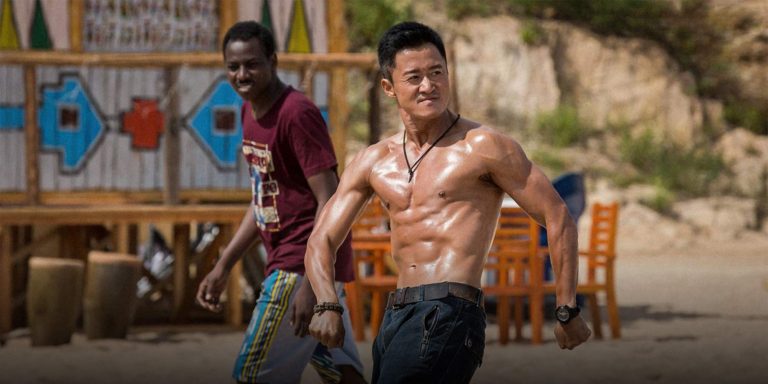

China’s education ministry on Thursday responded to a top political adviser’s call for more physical education as an antidote to the supposed “feminization” of young men, rekindling a fierce online debate about masculinity and traditional gender norms.
The ministry said it would recruit better gym class instructors and improve their teaching methods by introducing incentives such as free college education. The goal of this would be to cultivate masculinity in young men by balancing physical strength and mental health.
The response came after a delegate of the Chinese People’s Political Consultative Conference, a top political advisory body, had suggested that Chinese schoolboys are “weak, self-effacing, and timid,” and may be unduly influenced by so-called little fresh meats — handsome, well-groomed, delicate-featured celebrities in the vein of K-pop stars. The proposal also described the feminization of Chinese boys as “a threat to the development and survival of our nation.”
The ministry’s endorsement of the delegate’s proposal prompted immediate backlash on microblogging platform Weibo, with some netizens saying they felt appalled that the country’s top education authorities were being “openly sexist.” As of Friday afternoon, a related hashtag had been viewed more than 240 million times.
“Education is about nurturing children to become decent human beings,” wrote one Weibo user. “It shouldn’t be about setting gender standards for men and women. Learning to be a good person should come first.”
Among a minority of netizens, however, are those who agree that Chinese boys should be manlier and more athletic. “Finally, the education ministry does something right,” wrote a Weibo user who claimed to be a teacher. “Boys now are in dire need of more exercise so they can be manlier. They’re too gentle these days.”
Chinese authorities have long been preoccupied with a looming “masculinity crisis” and have proposed several solutions to this perceived problem, with some grassroots support. Last year, an article published by the state-run Xinhua News Agency ignited debate on whether hiring more male teachers would result in boys becoming more masculine. But with kindergarten, primary, and middle school teachers being disproportionately female, men already have an easier road to such jobs, getting offers even with lower qualifications than female applicants.
In 2019, the popular Chinese video-streaming site iQiyi was criticized for blurring the earrings of male participants on a reality show. And in 2016, Sixth Tone wrote about the rising number of gender education programs purporting to teach boys how to act like men.
Most recently, gym class has been touted as the silver bullet to ensure that boys grow into men. In September, the country’s top sports and education authorities announced that physical fitness would soon carry greater weight on the national high school entrance exam, while also suggesting that gym class should be considered as an addition to the national middle school core curriculum, alongside the usual academic subjects.
Some experts have praised giving gym class a higher profile while also expressing skepticism about how this would cultivate masculinity. Lü Jidong, head of the physical education department at Shanghai University of Finances and Economics, told Sixth Tone it’s a false equivalence to assume that sports make boys manlier.
“It’s correct that more fitness and more exercise can improve the overall well-being of our children, but the feminization issue is more psychological,” Lü said. “To give an extreme example, lots of gay guys love the gym and have big muscles. You don’t see gyms changing their sexuality.”
Cui Le, a Ph.D. student at the University of Auckland’s Faculty of Education and Social Work, says the idea that male “femininity” should be corrected is rooted in sexism and discrimination. “This approach to education will only encourage stereotypical gender concepts and enable serious bullying based on sexual identity and gender expression,” he told Sixth Tone.
Instead, Cui encourages China’s education authorities to do more academic research on sex and gender norms. “The research is especially important for sports education, as this field in particular is inundated with stereotypes and gender discrimination,” he said.
Editor: David Paulk.
(Header image: A still frame from the 2017 film “Wolf Warrior 2.” From Douban)